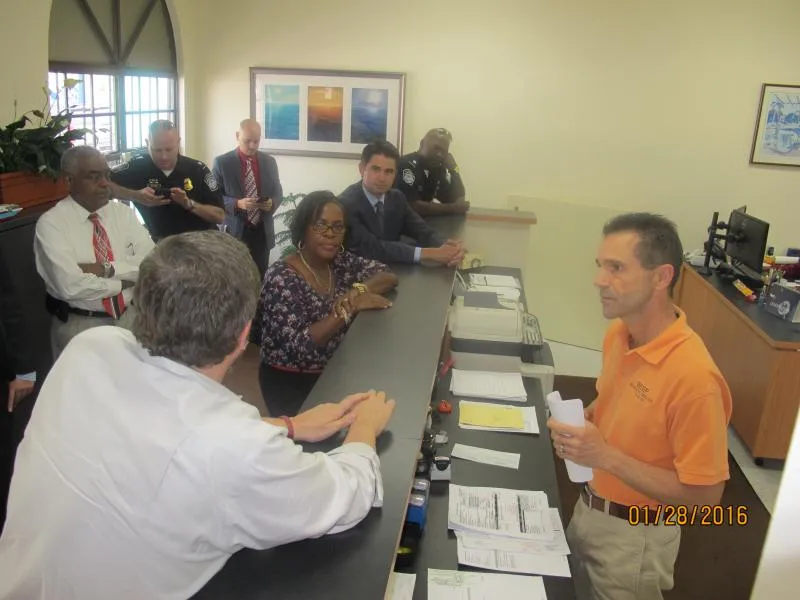Seeks to improve a paper-based entry process for all imported commercial products
ST. THOMAS, U.S. Virgin Islands - U.S. Customs and Border Protection (CBP) announced today that they continue to assess a viable way to incorporate the U.S. Virgin Islands into the Automated Commercial Environment (ACE) to expedite the importation process.

ACE Single Window, San Juan Field Office and St. Thomas Area Port visit the operations of Beep Business Services in Chalotte Amalie.
San Juan Field Office Assistant Director for Trade, Edward Ryan, and ACE Single Window Director, Stephen Hilsen, recently visited the Area Port of St. Thomas to gather information about the current cargo clearance process in the USVI in which all custom entries are made by Customs Business Service companies (“filers”) and/or importers in person.
The current process lacks electronic communication from the filers to CBP, hence, a heavy paper environment is created in all USVI ports of entry.
In addition, CBP visited local USVI customs business service companies to gather information about the needs of the trade community that can improve and facilitate the customs declaration process.
“We need to make the trade entry process in the USVI more customer friendly,” stated Ryan. “By automating the customs entry process, we can be more efficient in working in the USVI and also better support our partner government agencies.”
CBP requirements in the USVI are unique because it operates under the Danish Public Law 64; a law that remains in effect since 1914, when the Dutch sold the islands to the U.S.
Federal statutes require CBP to collect customs duties on behalf of the USVI, this is not subject to any other agreements, as well as the authority and broad discretion to administer the customs laws of the USVI.

